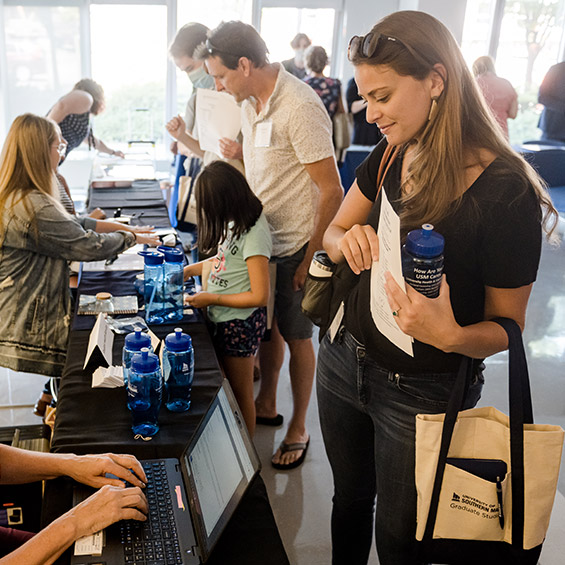School Psychology (EdS)
- Educational Specialist (EdS)
- Education Specialist Program
Modes of study:
Demand for certified school psychologists is at an all-time high, and the need will continue to soar. USM has the only School Psychology Education Specialist training program in the state — and a 100% job placement rate for graduates.
Flexible & convenient
Learn on your own schedule through a mix of in-person and online courses, with live classes held on weekday evenings
Award-winning alumni
Several of our graduates have been named Maine School Psychologist of the Year
State & national credentials
Qualify for state and national certification as a specialist-level school psychologist when you graduate
Credit hours
67 required credit hours. Most courses are equal to 3 credit hours.
Program duration
Complete the program in as few as 3 years or study part-time.
Department & School
Admissions
Apply by December 1 for fall term. No GRE required.

A supportive & collaborative culture
As a grad student in educational and school psychology at USM, you work closely with your faculty advisor to develop your individualized study plan. Specialized coursework in school psychology emphasizes a culturally responsive and problem-solving approach to assessment and intervention with PK-12 learners.
Intensive & authentic experiences
Your training includes 400 hours of practicum and a 1,200-hour internship in PK-12 schools supervised by credentialed school psychologists. You gain the required competencies in assessment, intervention, and consultation as you provide essential services to students and families.


Network of community partners
USM has an extensive and growing network of partners for field-based training. You work with students and families from diverse backgrounds among 45+ public school districts, private schools, and clinics/organizations across the state. Rural and high-needs schools are a special focus.
Where can you go as an Education Specialist in school psychology?

Two possible certifications
When you graduate, you can apply for certification as a School Psychologist–Specialist (093) through the Maine Department of Education and as a Nationally Certified School Psychologist (NCSP) through the National Association of School Psychologists.
We’re here to help answer questions about costs
What to expect when you study school psychology at USM

Engaged & dedicated faculty
All faculty are credentialed school psychologists, and many are dually credentialed as Board Certified Behavior Analysts®. All students receive individualized mentoring from full-time faculty.

Graduate student support
Our Office of Graduate Studies offers professional development, scholarships, and graduate assistantships. They also foster community through Peer Mentorship and the Graduate Student Board.

Optional certification in behavior analysis
Bolster your portfolio with concurrent enrollment in the Certificate of Graduate Study in Applied Behavior Analysis program.
Admission information: EdS in School Psychology
Application deadline
Apply by December 1 for fall term start.
Next steps
Our graduate admissions counselors are here to answer you questions about the admissions process, our academic programs, and student support services.
Request information
Complete this form to get more information about our University.

